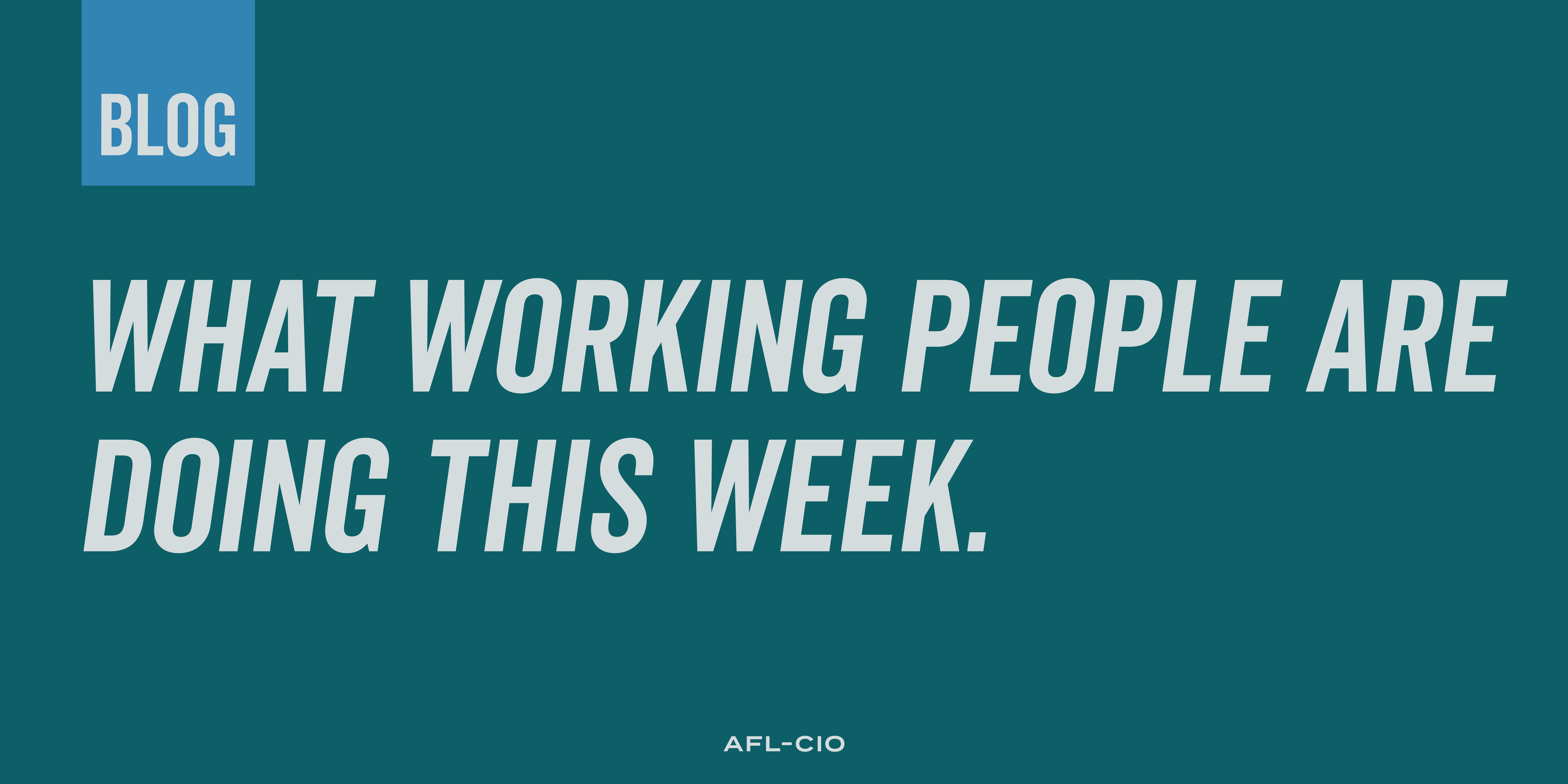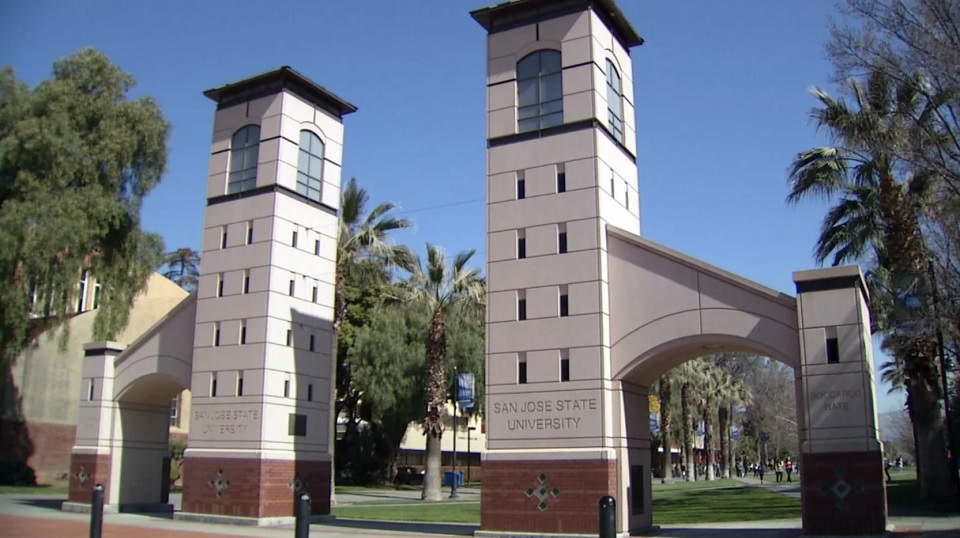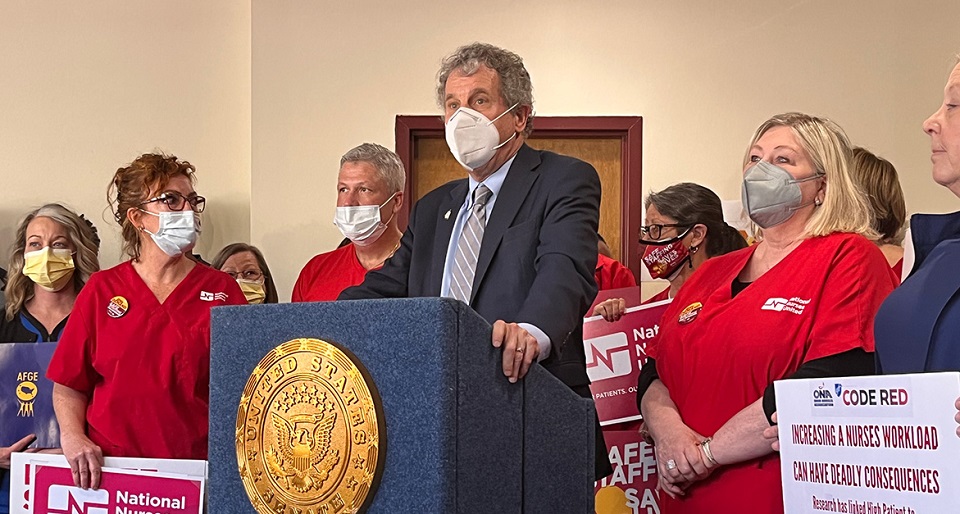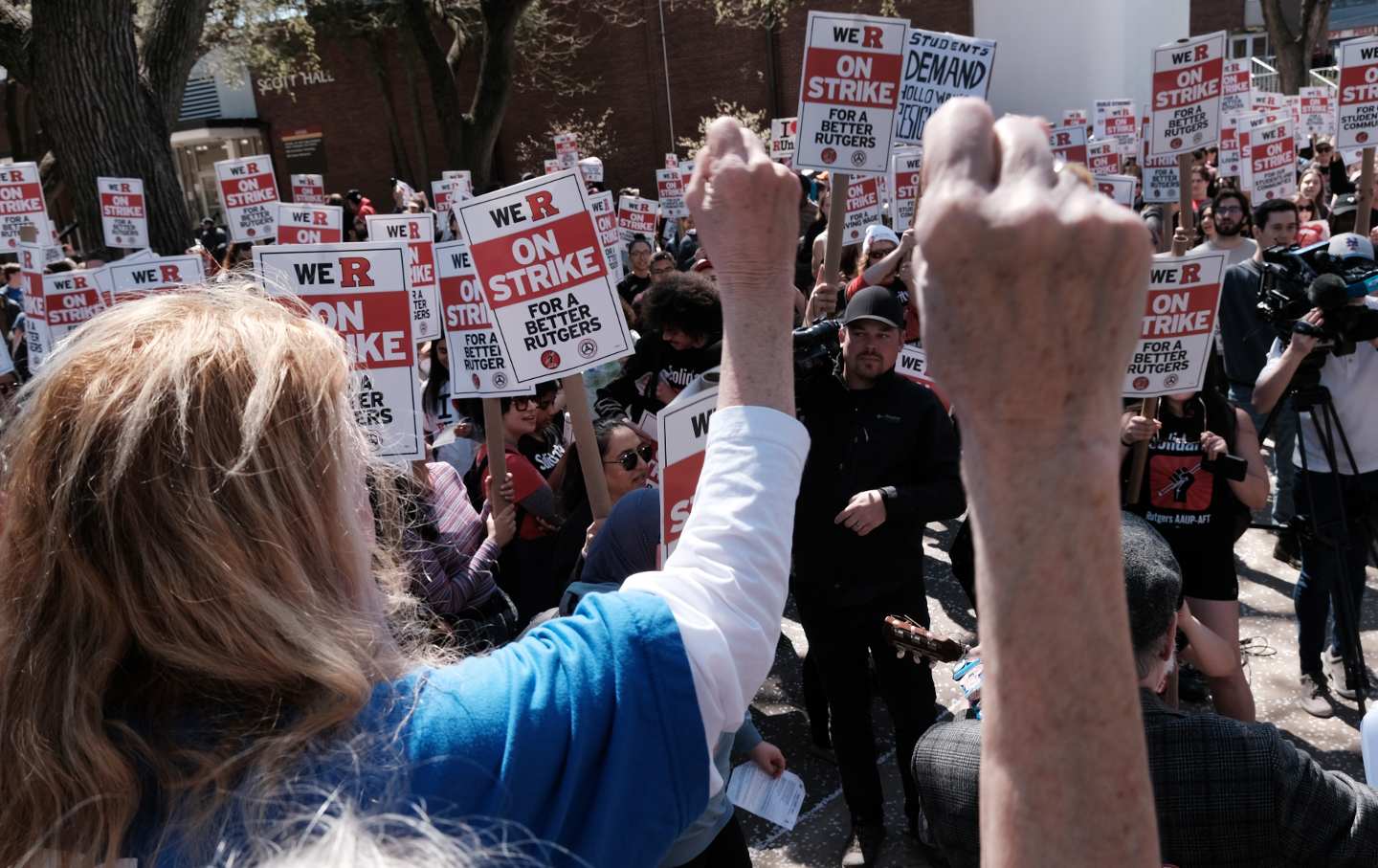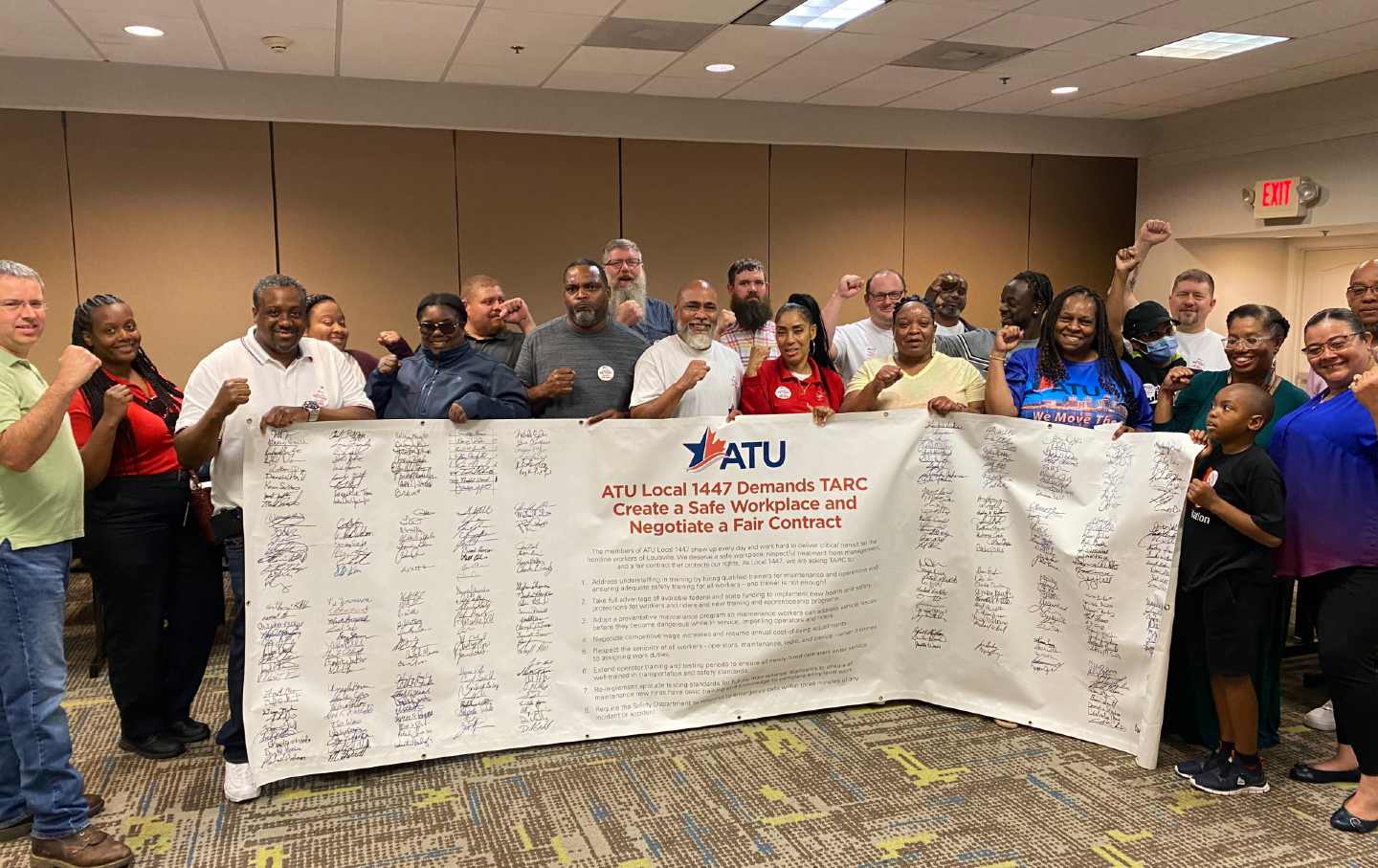SACRAMENTO, Calif. – Student workers in the California State University system launched the largest non-academic student organizing effort in U.S. history on April 17, filing over 4,000 cards with the state’s Public Employee Relations Board declaring that they want to form a union representing some 10,000 student assistants, mostly undergraduates, who work in supporting roles on the CSU system’s 23 campuses throughout the state.
Later that morning, student assistants were joined by leaders of CSU academic and support staff unions and a state legislator with a powerful union history as they held a virtual press conference to announce their action.
Grayce Honsa, a first-generation college student now in her third year at San Diego State University, where she’s majoring in political science and women’s studies, told reporters assembled on Zoom that she supports herself through college by living on campus as a residence adviser, working as a mentor at the campus Women’s Resource Center and sometimes helping with safety and security at her residence building.
“I love my job mentoring women and students who are non-gender-conforming in the Gender Equity Program, and the center has so many resources that are so important to students,” she said. “Still, the student assistant work feels extremely unstable. We don’t have health insurance, paid time off, sick pay, and there’s so much instability within that. So many student assistants need to work to support themselves, yet the university doesn’t give that support back to the people who are making the university run every day.”
Honsa said she was inspired by the University of California academic workers’ nearly-five-week-long strike late last year, and wanted to be a part of that movement, too.
“The CSU does need to take better care of their students, and hear their voices, because our voices matter,” she said. “That’s why I am calling for the CSU to hold an election and let our students vote … with the union our voices could really be heard and a positive change could be made.”
Another third-year undergraduate, Cameron Macedonio, a communications major specializing in journalism, cinema and television arts at Cal State Fullerton, said he’s very fortunate to be able to live with his family fairly close to campus, but he is largely supporting himself, and among his expenses are very costly textbooks and a car.
“Last August,” Macedonio said, “I got a job right in line with my goals,” as general manager at the student-run radio station. There, he manages programming, handles marketing, leads a staff of 12 students, and makes sure over 100 student DJs understand the station’s policies and know how to use its equipment. “I love the work,” he said, “but I’m the only general manager I know who works for minimum wage.”
Macedonio said he works 30 to 35 hours a week on average – far more than the 20 hours he’s paid for under the CSU policy that caps student assistants’ paid hours at 20 per week – besides carrying 18 hours of classes.
“I make it work,” he said, “but it isn’t easy. The worst part is that the university truly doesn’t listen to our needs.” For example, he said, the university mismanaged the station’s budget, and funds will run out before the school year is over, forcing all student assistants there to go without pay for a month. When he brings such problems to university administrators, they say they’re sorry, they don’t have the money.
“I’ve learned we can’t count on the university to look out for us as student assistants,” Macedonio said. “I can’t wait to vote Yes to our union and bring the power of all student assistants together, to make the changes we need to succeed in school and beyond. CSU, let us vote!”
Elisa Mendez-Pintado, a graduate student in school psychology at San Diego State University, runs a mentorship program at the school’s Latinx Resource Center, supervising a half-dozen mentors there in addition to serving as an in-training school psychologist at a local school to gain hours toward her professional license.
Speaking in English and in Spanish, she highlighted the lack of health benefits as a major concern and said the CSU policy of limiting student assistants’ paid hours to 20 per week, while intended to help students focus on schoolwork, causes special problems for first-generation students or those whose families can’t help them financially.
“These policies go against the CSU’s mission to be inclusive and open up opportunities for students like those I mentor at the Latinx Resource Center,” Mendez-Pintado said. “By coming together in a union with other student assistants, we can make student assistant work what it is meant to be: the work that supports students and their educational goals.”
The student assistants and their union supporters were greeted by California Assemblymember Liz Ortega, D-Hayward, who before being elected to that position in November, headed the Alameda Labor Council, based in Oakland.
Calling the student assistants’ filing for their union “a historic step,” Ortega, who also spoke in both English and Spanish, said the fair thing would be for the university to let the student workers vote. “But I’ve often found that employers with the most elevated and lofty values and mission statements are the ones who fight just as hard as some of the richest corporations in the world. So don’t be surprised that you have a fight on your hands, and don’t be discouraged, because we will all have your back.”
Calling CSU “a special institution dedicated to uplift and provide opportunities,” she urged its leaders to “lean into those values of fairness, democracy, opportunity, and valuing and empowering students. The only way to do this is to let student workers vote.”
Chairing the press conference was Catherine Hutchinson, president of the California State University Employees Union, CSUEU SEIU Local 2579, which represents some 16,000 support workers at 23 CSU campuses across the state.
Hutchinson, who is a biology technician at CSU Channel Islands, told how that union’s winning significant improvements for its members had aroused the student assistants’ interest in forming a union.
“Many of us work side by side with student assistants,” she said, “and they would share frustrations about the universities’ making them do the work of CSUEU staff without the pay, benefits or protections of a union. We are supporting the students coming together to form their union, because it’s the right thing to do. If they’re doing any work, they should have a union.”
Also expressing wholehearted support was Charles Toombs, president of the California Faculty Association. He said the student assistants are often the first contact other students and the public have with many departments and programs throughout the CSU. “They are workers, they perform in a professional manner, and yet we have heard today how they struggle to make ends meet.”
Addressing the CSU administration, he said, “They have told you this morning that they want the opportunity to vote for a union that will give them worker rights for pay, benefits and other working conditions. I challenge the CSU to encourage the formation of student workers as a union.”
CSUEU Executive Director Jim Philliou told reporters the organizing process is currently on two tracks. CSUEU has filed a petition with the Public Employee Relations Board for the student assistants to be part of the existing CSUEU units, and a hearing is to take place in June. The cards filed just before the press conference open a second track, for a separate bargaining unit of student assistants.
Meanwhile, he said, CSUEU will work with the PERB, CSU administrators and the student assistants, to make sure the right groups of student employees are included in the bargaining unit, which will be able to vote to be in the union.
Now that the cards have been filed, he said, the state university system has the option to work with the union and PERB to schedule an election and reach agreement on who’s eligible to vote, or they can try to stall the process.
“We’ll be ready to challenge them for any of their tactics,” he said, “but we’re calling on them to take the high road here – negotiate the issues to set up an election that’s timely and allow both sides to focus on setting up the process to work on improvements for the student assistants that they find important, based on their experience.”
Philliou said the United Auto Workers local representing graduate student academic workers in the CSU system is also expressing solidarity with the student assistants’ organizing efforts.
Asked what community members can do to support the student assistants in their efforts, Philliou urged calls to chancellors of state universities, asking when the election will happen, and contacting one’s state legislator to ask what’s happening at the state university in their districts.










